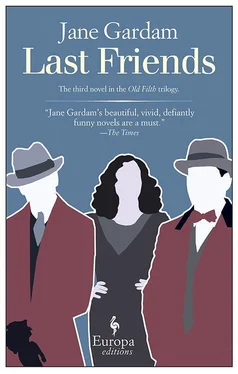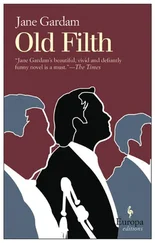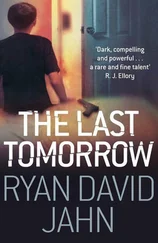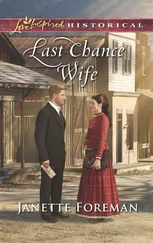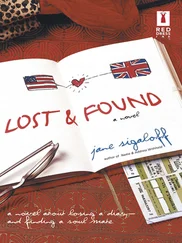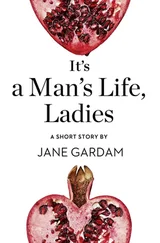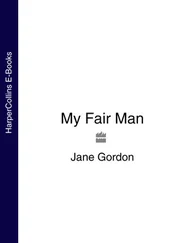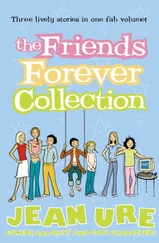* * *
He didn’t go again to the beach that week. He wandered to the nasty little shops in the new town and the new Palace Cinema. He had a bit of pocket money and went in and asked for vodka at the Lobster Inn. He was thrown out. He wanted a girl to tell this to. It surprised him. The girls at his school sniggered and didn’t wash much. They hung about outside the cinema. One or two had painted their mouths bright red. You could get a tube of it at Woolworths for sixpence. They shouted to him to come join them, but he didn’t stop. He dawdled home.
The headmaster of Terry’s school did not live on the premises or go in daily on the train. He lived several miles inland on the moors. He was a healthy man and often pedalled in to Herringfleet on a bicycle with a basket on the front stuffed full of exercise books corrected the night before, for he was a teacher as well as a headmaster.
He and the bike made for the Herringfleet beaches — he always checked the tide-tables — and, dependent on the condition of the sand — he walked or rode the six miles to school, thinking deeply. He always wore a stiff white riding mac with a broad belt and a brown felt homburg hat. Sometimes he had to walk beside his bike when the sands were soft, sometimes push it hard, but he was always very upright and to his chagrin rather overweight. There were little air-holes of brass let in to the mac under the arms for ventilation. Despite his healthy, exhausting regime he was a putty-faced man who never smiled. It was rumoured that there was a wife somewhere and he had a son at the school who got himself there on the train like most of them and home again by his wits. A clever, little younger boy. Fred. Terry liked him.
On the morning beaches the headmaster (a Mr. Smith) often came upon Peter Parable doing an early sea-coal stint before going to his solicitor’s office. They nodded at each other, Parable’s gaze on the black ripples in the sand left by the tide. Smith would briskly nod and pass by, growing smaller and smaller until he was a dot disappearing up the path that led to his school assembly and the toil of the term. Smith and Parable had been at the school together as boys but hadn’t cared much for each other. They had only their cleverness in common. Now they never talked.
That summer Parable began to watch Smith’s straight back diminishing away from him. He noted the little eyelet holes of the mac and the plumpness and the rather desperate marching rhythm. Even if he was on the bike Mr. Smith always looked tired. Better hurry up, thought Parable. Smith, who knew that he was being watched, also knew that at some point he was going to be asked for something.
One beautiful, still morning Parable shouted out, ‘Smith!’
Smith stopped the bike and placed both feet on the sand but didn’t turn his head. ‘What is it, man? Hurry up. I’ll be late.’
‘There’s something you have to do. At once.’
‘Indeed?’ (What does Parable do at once or even slowly? Plays on the beach.)
‘You have a boy at school who in my professional opinion — and Opinions are my stock-in-trade as a lawyer — is remarkable. They’re going to put him in The Works when he leaves you next year and you have to stop it. He must go to the university. He already verges on the phenomenal. I’ve begun to play chess with him. We debate. He has an interesting foreign father. Rather broken up.’
‘You mean Florrie Benson’s boy?’
‘And—?’
‘They need his wages. Sooner the better. It’s a bad business there. She can’t go on.’
‘She’ll try. We both know her.’
‘How could they afford a school until he’s university age?’
‘There are scholarships. We each got one.’
‘We had better parents.’
‘I won’t have that,’ shouted Parable after him across the sand, ‘You have a boy yourself who’s clever. I bet he’ll be spared The Works.’
An hour later at the end of School Assembly and prayers Smith paused for a long minute before clanging the hand-bell that sent the rabble of Teesside to their class-rooms and announced that he wanted Terry Benson in his study.
‘Terry Njinsky? Venetski? Benson? A letter for you to take home.’
Terry, in some dream-scape, was kicked awake by his neighbours and looked about him. (‘What you done, Terry?’ ‘Only tried getting vodka for me Dad.’ ‘What — nickin’?’ ‘Nah — cash.’) A new respect for the already-respected Terry ran down the line.
Smith surveyed the crowd of spotty children, all thin. Grey faces. Poor. All underfed. Terry whatsname — Benson’s white-gold hair and healthy face shone amongst them (It’s said she gets them tripe). We’ll get that hair cut, Smith thought. Start at the top. I’ll write to the father.
‘Take a letter down now, Miss Thompson,’ he said back in his office.
‘I’m not sure Florrie Benson can read,’ said the secretary. ‘Me Mam said she was useless at school. And the father’s a cripple and only talks Russian. He’s a retired Russian spy.’
* * *
The letter was typed, nevertheless, that day and sat waiting for Terry to collect and take home. At the end of the afternoon the headmaster, Smith, came in and pointed at it and said, ‘Letter, Miss Thompson?’
‘Oh,’ she said, ‘He never came. I’ll tek it. I know where he lives, down Herringfleet. On my way home.’
‘No,’ said Smith, ‘I’ll drop it in. I can take the bike that way. Say nothing to the boy. He’s probably been trying all day to forget it. I’ll bike along the sand.’
‘You tired, Sir?’
‘Certainly not,’ he said, pulling on the ventilated mackintosh that made him paler still. ‘Certainly not! Box on.’
By tea-time, Florrie cooking brains and hearts on a skillet, the letter was lying across the room on the door-mat. The Odessan was having a better day and was in a chair. His back was to the door, but he sensed the letter. He said, ‘We have a letter. I heard a bicycle and a man cough. Pick it up, will you, Florrie?’
‘No,’ said Florrie adding dripping, peeling potatoes.
‘Then I’ll wait for Terry to do it. Where is he?’
‘It may not be for you,’ she said. ‘The last one was to me. And what came o’ that ?’
* * *
Years before there had come a letter on the mat that she remembered now like excrement brought in on a shoe. It was a letter in a thick cream envelope written in an operatic hand in purple ink.
In those days the situation at No. 9 Muriel Street was still an interesting mystery in Herringfleet. Most people kept themselves at a distance. People crammed together in mean streets are not always in and out of each other’s houses.
The letter had been sent without a stamp and delivered ‘By Hand’. It said so in the top, left-hand corner. The letter-paper inside was the colour of pale baked-custard and thick as cloth.
Dear Mrs. Vet(scrawl)y, it had said, ‘I would be so delighted if you would bring your little boy to a fireworks party — with supper, of course — on November 5th for Guy Fawkes’ Celebrations at The Towers. A number of local children will be coming and we hope to give them a lasting and happy experience. Five o’ Clock P.M. until 8 P.M. Warm coats and mittens. Sincerely yours. Veronica Fondle.’
‘She has asked me to a party,’ Florrie said. ‘Me and Terry.’ Anton watched her blush and smile and thought how young she was. How beautiful. ‘With Terence,’ she said. ‘Our Terence. For Guy Fawkes.’ She gazed at the letter. ‘It’s to be a supper — unless she means we take our supper? — and at night !’
‘What,’ he asked, ‘is Guy Forks?’
‘We burn a model of him every year. For hundreds of years. Because he once tried to burn down the Parliament in London.’
Читать дальше
